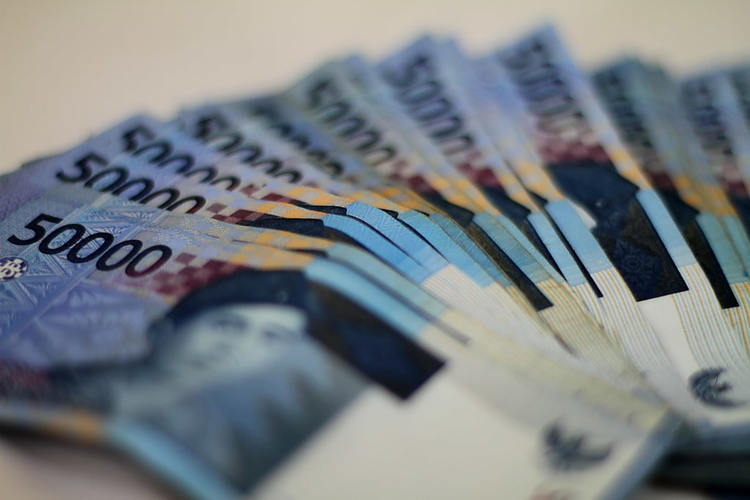- USD/IDR rises due to risk aversion amid rising Middle-East tensions.
- The US Dollar receives support from the decreasing odds of a Fed’s bumper rate cut in November.
- Bank Indonesia might have intervened in the FX market to support the Rupiah by ensuring the balance of supply and demand.
USD/IDR extends its winning streak for the third successive day, trading around 15,400.00 during the early European hours on Thursday. The Indonesian Rupiah lost around 1% against the US Dollar (USD) as the rising geopolitical tensions have dampened the risk appetite.
The waning likelihood of an aggressive rate cut by the Federal Reserve (Fed) in November helps the US Treasury yields to continue to gain ground and support the US Dollar (USD). The CME FedWatch Tool indicates that markets are assigning a 65.9% probability to a 25 basis point rate cut by the Federal Reserve in November, while the likelihood of a 50-basis-point cut is 31.4%, down from 49.3% a week ago.
The US Dollar Index (DXY), which measures the value of the US Dollar (USD) against its six major peers, continues to gain ground for the fourth successive session. The DXY trades around 101.80 with 2-year and 10-year yields on US bonds standing at 3.65% and 3.80%, respectively, at the time of writing.
On the IDR’s front, Bank Indonesia, the Indonesian central bank, has intervened in the forex market to support the Indonesian Rupiah by ensuring the balance of supply and demand.
On Tuesday, Indonesia’s Inflation rate fell to 1.84% in September, down from 2.12% in the previous month, reaching its lowest level since November 2021. This decline keeps inflation within the central bank’s target range of 1.5% to 3.5%.
Risk sentiment FAQs
In the world of financial jargon the two widely used terms “risk-on” and “risk off” refer to the level of risk that investors are willing to stomach during the period referenced. In a “risk-on” market, investors are optimistic about the future and more willing to buy risky assets. In a “risk-off” market investors start to ‘play it safe’ because they are worried about the future, and therefore buy less risky assets that are more certain of bringing a return, even if it is relatively modest.
Typically, during periods of “risk-on”, stock markets will rise, most commodities – except Gold – will also gain in value, since they benefit from a positive growth outlook. The currencies of nations that are heavy commodity exporters strengthen because of increased demand, and Cryptocurrencies rise. In a “risk-off” market, Bonds go up – especially major government Bonds – Gold shines, and safe-haven currencies such as the Japanese Yen, Swiss Franc and US Dollar all benefit.
The Australian Dollar (AUD), the Canadian Dollar (CAD), the New Zealand Dollar (NZD) and minor FX like the Ruble (RUB) and the South African Rand (ZAR), all tend to rise in markets that are “risk-on”. This is because the economies of these currencies are heavily reliant on commodity exports for growth, and commodities tend to rise in price during risk-on periods. This is because investors foresee greater demand for raw materials in the future due to heightened economic activity.
The major currencies that tend to rise during periods of “risk-off” are the US Dollar (USD), the Japanese Yen (JPY) and the Swiss Franc (CHF). The US Dollar, because it is the world’s reserve currency, and because in times of crisis investors buy US government debt, which is seen as safe because the largest economy in the world is unlikely to default. The Yen, from increased demand for Japanese government bonds, because a high proportion are held by domestic investors who are unlikely to dump them – even in a crisis. The Swiss Franc, because strict Swiss banking laws offer investors enhanced capital protection.
Read the full article here

